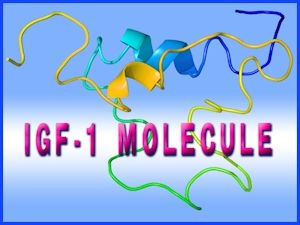Introduction
The intricate relationship between urological and neurological health is a critical aspect of men's health that often goes under-discussed. For American males, understanding this connection is paramount, as it can influence both quality of life and overall well-being. This article delves into the interplay between these two systems, with a particular focus on urological health.
The Urological-Neurological Interface
The urinary and nervous systems are closely linked, with the latter playing a pivotal role in regulating the functions of the former. The bladder, prostate, and urethra are all innervated by the nervous system, which controls the complex process of urination. Any disruption in neurological function can lead to urological issues, such as urinary incontinence, retention, or even sexual dysfunction.
Common Urological Conditions with Neurological Roots
Several urological conditions in American males have a neurological basis. Neurogenic bladder, for instance, arises when there is a dysfunction in the nerves that control the bladder. This can be due to conditions like multiple sclerosis, spinal cord injuries, or stroke. Similarly, erectile dysfunction can often be traced back to neurological causes, including peripheral neuropathy or damage to the nerves that supply the penis.
Impact of Neurological Disorders on Urological Health
Neurological disorders can significantly impact urological health. Parkinson's disease, for example, can lead to urinary urgency and frequency due to the degeneration of the nerves that control bladder function. Similarly, men with diabetes may experience diabetic neuropathy, which can impair nerve signals to the bladder and result in incomplete emptying or overflow incontinence.
Diagnostic Approaches
Diagnosing urological issues with a neurological basis requires a comprehensive approach. Urologists may employ urodynamic testing to assess bladder function, while neurologists might conduct nerve conduction studies or imaging to pinpoint the source of the problem. Collaboration between these specialists is crucial to accurately diagnose and treat these conditions.
Treatment Strategies
Treatment for urological conditions with neurological origins varies depending on the underlying cause. Behavioral therapies, such as bladder training and pelvic floor exercises, can be effective for some men. Medications, including anticholinergics for overactive bladder or phosphodiesterase inhibitors for erectile dysfunction, may also be prescribed. In more severe cases, surgical interventions like sacral nerve stimulation or bladder augmentation might be necessary.
Preventive Measures and Lifestyle Considerations
While not all neurological conditions can be prevented, certain lifestyle choices can mitigate the risk of developing urological issues. Maintaining a healthy weight, engaging in regular physical activity, and managing chronic conditions like diabetes can help preserve both urological and neurological health. Additionally, avoiding smoking and excessive alcohol consumption can reduce the risk of nerve damage and subsequent urological problems.
The Role of Regular Check-ups
Regular medical check-ups are essential for American males to monitor their urological and neurological health. Early detection of issues can lead to more effective management and better outcomes. Men should discuss any changes in urinary habits or sexual function with their healthcare provider to address potential neurological concerns promptly.
Conclusion
The connection between urological and neurological health is a vital consideration for American males. By understanding this link, men can take proactive steps to maintain their health and seek appropriate care when needed. Through a combination of lifestyle management, regular screenings, and collaborative medical care, men can navigate the nexus of these two systems to enhance their overall well-being.
Contact Us For A Fast And Professional Response

- Urological Health and Sexual Wellness: A Comprehensive Guide for American Men [Last Updated On: March 8th, 2025] [Originally Added On: March 8th, 2025]
- Hydration's Vital Role in Urological Health for American Males [Last Updated On: March 18th, 2025] [Originally Added On: March 18th, 2025]
- Genetic Insights into Prostate Cancer, BPH, and Kidney Disease in American Men [Last Updated On: March 18th, 2025] [Originally Added On: March 18th, 2025]
- Managing Urological Pain: Causes, Diagnosis, and Treatment Strategies for Men [Last Updated On: March 18th, 2025] [Originally Added On: March 18th, 2025]
- Urological Infections in Men: Causes, Prevention, and Management Strategies [Last Updated On: March 18th, 2025] [Originally Added On: March 18th, 2025]
- Urological Health Strategies for American Men in the Workplace [Last Updated On: March 18th, 2025] [Originally Added On: March 18th, 2025]
- Heart and Urology: Interconnected Health in American Men [Last Updated On: March 19th, 2025] [Originally Added On: March 19th, 2025]
- Urological Health and Fertility: Conditions, Diagnosis, and Management for American Males [Last Updated On: March 19th, 2025] [Originally Added On: March 19th, 2025]
- Urological Innovations Enhancing Care for American Males: Trends and Advancements [Last Updated On: March 19th, 2025] [Originally Added On: March 19th, 2025]
- Exercise Routines to Enhance Urological Health in American Men [Last Updated On: March 19th, 2025] [Originally Added On: March 19th, 2025]
- Smoking's Detrimental Effects on Urological Health in American Men [Last Updated On: March 20th, 2025] [Originally Added On: March 20th, 2025]
- Urological Health Guide for American Men: Symptoms, Detection, and Management [Last Updated On: March 21st, 2025] [Originally Added On: March 21st, 2025]
- Urological Health Essentials for American Males: Screenings, Lifestyle, and Education [Last Updated On: March 21st, 2025] [Originally Added On: March 21st, 2025]
- Urological Health Essentials for American Male Athletes: Risks, Prevention, and Care [Last Updated On: March 22nd, 2025] [Originally Added On: March 22nd, 2025]
- Understanding Urological Insurance Coverage: A Guide for Men [Last Updated On: March 22nd, 2025] [Originally Added On: March 22nd, 2025]
- Debunking Urological Myths: Facts on Prostate Cancer, Urination, and Erectile Dysfunction [Last Updated On: March 23rd, 2025] [Originally Added On: March 23rd, 2025]
- Specialized Urological Care and Services for American Veterans [Last Updated On: March 23rd, 2025] [Originally Added On: March 23rd, 2025]
- Urological Health's Psychological Impact on American Men: Addressing Stigma and Support [Last Updated On: March 23rd, 2025] [Originally Added On: March 23rd, 2025]
- Urological Health in Aging Men: Screening, Lifestyle, and Advances in Treatment [Last Updated On: March 23rd, 2025] [Originally Added On: March 23rd, 2025]
- Stress and Urological Health in American Males: Impacts and Management Strategies [Last Updated On: March 23rd, 2025] [Originally Added On: March 23rd, 2025]
- Dietary Strategies for Enhancing Urological Health in American Men [Last Updated On: March 23rd, 2025] [Originally Added On: March 23rd, 2025]
- Supplements and Urological Health: A Guide for American Men [Last Updated On: March 23rd, 2025] [Originally Added On: March 23rd, 2025]
- Obesity's Impact on Urological Health in American Men: Risks and Mitigation Strategies [Last Updated On: March 24th, 2025] [Originally Added On: March 24th, 2025]
- Urological Health in Young American Males: Importance of Early Detection and Screening [Last Updated On: March 24th, 2025] [Originally Added On: March 24th, 2025]
- Urological Surgery Recovery Guide for American Males: Tips and Strategies [Last Updated On: March 24th, 2025] [Originally Added On: March 24th, 2025]
- Urological Health and Cancer: Risks, Prevention, and Early Detection in American Males [Last Updated On: March 24th, 2025] [Originally Added On: March 24th, 2025]
- Urological Health's Impact on Mental Well-being in American Men: A Holistic Approach [Last Updated On: March 25th, 2025] [Originally Added On: March 25th, 2025]
- Urological Health: Essential Preventive Care for American Men's Well-being [Last Updated On: March 25th, 2025] [Originally Added On: March 25th, 2025]
- Urological Health in American Men: Conditions, Prevention, and Holistic Care [Last Updated On: March 25th, 2025] [Originally Added On: March 25th, 2025]
- Urological Health: Key to Fertility and Family Planning for American Males [Last Updated On: March 25th, 2025] [Originally Added On: March 25th, 2025]
- Environmental Factors Impacting Urological Health in American Males: Risks and Prevention [Last Updated On: March 25th, 2025] [Originally Added On: March 25th, 2025]
- Urological Health and Sleep Quality: A Vital Connection for American Men [Last Updated On: March 25th, 2025] [Originally Added On: March 25th, 2025]
- Managing Urological Health: Essential Travel Tips for American Men [Last Updated On: March 26th, 2025] [Originally Added On: March 26th, 2025]
- Urological Health Guide: Procedures, Diagnosis, and Care for American Males [Last Updated On: March 26th, 2025] [Originally Added On: March 26th, 2025]
- Urological Rehabilitation: Enhancing Urinary, Sexual, and Prostate Health for American Men [Last Updated On: March 26th, 2025] [Originally Added On: March 26th, 2025]
- Empowering Men: Integrating Urology into Sexual Health Education in the U.S. [Last Updated On: March 26th, 2025] [Originally Added On: March 26th, 2025]
- Urological Health and Immunity: Strategies for American Males [Last Updated On: March 26th, 2025] [Originally Added On: March 26th, 2025]
- Urological Health: Key to Longevity for American Men [Last Updated On: March 26th, 2025] [Originally Added On: March 26th, 2025]
- Technological Advances in Urological Diagnosis for American Males: Imaging, Minimally Invasive Procedures, and Beyond [Last Updated On: March 26th, 2025] [Originally Added On: March 26th, 2025]
- Exercise Benefits and Safe Practices for Urological Health in American Males [Last Updated On: March 26th, 2025] [Originally Added On: March 26th, 2025]
- Medications' Impact on Urological Health in American Men: A Comprehensive Overview [Last Updated On: March 26th, 2025] [Originally Added On: March 26th, 2025]
- Optimizing Urological Health: Best Practices for American Males [Last Updated On: March 27th, 2025] [Originally Added On: March 27th, 2025]
- Urological Health's Impact on American Men's Social Life and Well-being [Last Updated On: March 27th, 2025] [Originally Added On: March 27th, 2025]
- Alcohol's Impact on Urological Health: Risks and Strategies for American Men [Last Updated On: March 27th, 2025] [Originally Added On: March 27th, 2025]
- Integrating Urological Health into U.S. Men's Health Campaigns: A Vital Step Forward [Last Updated On: March 27th, 2025] [Originally Added On: March 27th, 2025]
- Urological Health and Vision: Exploring Connections and Impacts in American Men [Last Updated On: March 27th, 2025] [Originally Added On: March 27th, 2025]
- Managing Urological Health in American Men with Chronic Illnesses: Strategies and Insights [Last Updated On: March 28th, 2025] [Originally Added On: March 28th, 2025]
- Urological and Bone Health Link: Essential Insights for American Males [Last Updated On: March 28th, 2025] [Originally Added On: March 28th, 2025]
- Urological Health Impact and Management Strategies for American Men [Last Updated On: March 28th, 2025] [Originally Added On: March 28th, 2025]
- Urological Health's Impact on Mental Well-being in American Men: Awareness and Management [Last Updated On: March 28th, 2025] [Originally Added On: March 28th, 2025]
- Urological Health and Skin Care: A Vital Connection for American Males [Last Updated On: March 29th, 2025] [Originally Added On: March 29th, 2025]
- Urological Health and Hearing Loss: Vascular, Hormonal, and Inflammatory Links in American Males [Last Updated On: March 30th, 2025] [Originally Added On: March 30th, 2025]
- Urological Health: Vital for Men's Well-being and Advocacy in the U.S. [Last Updated On: April 2nd, 2025] [Originally Added On: April 2nd, 2025]
- Urological Health in American Men: Research, Impact, and Future Directions [Last Updated On: April 4th, 2025] [Originally Added On: April 4th, 2025]
- Urological Health Linked to Dental Care: Implications for American Men's Well-being [Last Updated On: April 5th, 2025] [Originally Added On: April 5th, 2025]
- Urological and Respiratory Health Link in American Males: Importance and Impact [Last Updated On: April 5th, 2025] [Originally Added On: April 5th, 2025]
- Urological and Digestive Health: Interconnected Systems and Holistic Care for American Males [Last Updated On: April 6th, 2025] [Originally Added On: April 6th, 2025]
- Urological Health's Impact on American Men's Careers: Management Strategies [Last Updated On: April 7th, 2025] [Originally Added On: April 7th, 2025]
- Urological and Endocrine Health: A Vital Connection for American Males [Last Updated On: April 7th, 2025] [Originally Added On: April 7th, 2025]
- Urological Health in U.S. Men's Policy: Need for Focus and Reform [Last Updated On: April 8th, 2025] [Originally Added On: April 8th, 2025]
- Urological Health: Breaking Stigma, Enhancing Men's Well-being in America [Last Updated On: April 10th, 2025] [Originally Added On: April 10th, 2025]
- Urological and Musculoskeletal Health: A Holistic Guide for American Men [Last Updated On: April 10th, 2025] [Originally Added On: April 10th, 2025]
- Urological and Cardiovascular Health: Critical Links and Management for American Males [Last Updated On: April 12th, 2025] [Originally Added On: April 12th, 2025]
- Urological Health in American Men: Conditions, Screenings, and Lifestyle Impact [Last Updated On: April 12th, 2025] [Originally Added On: April 12th, 2025]
- Urological Health Integration in U.S. Men's Programs: Importance and Impact [Last Updated On: April 12th, 2025] [Originally Added On: April 12th, 2025]
- Urological Health's Impact on American Men's Family Life and Well-being [Last Updated On: April 13th, 2025] [Originally Added On: April 13th, 2025]

















